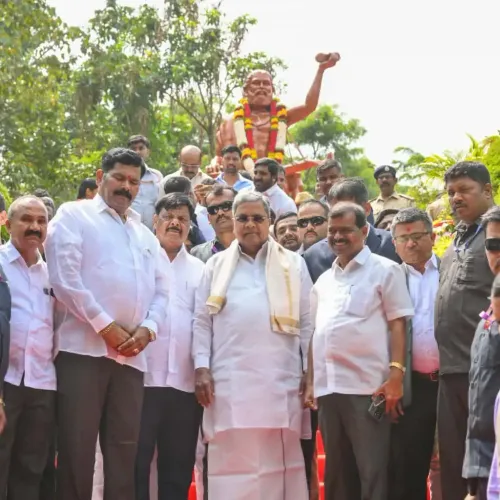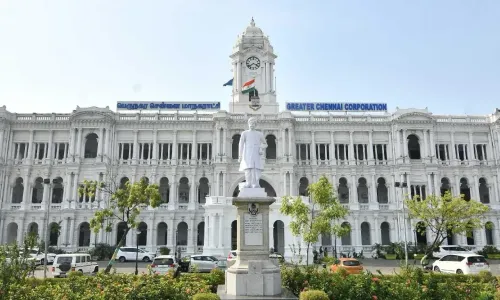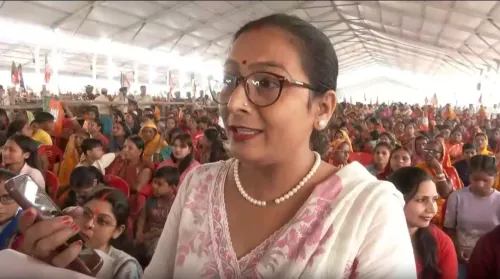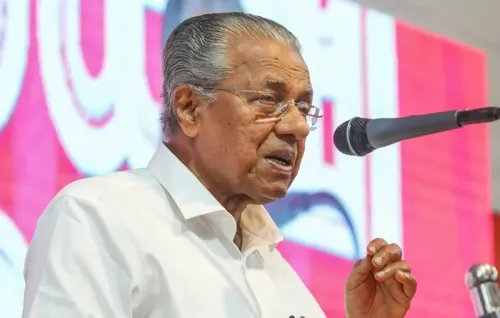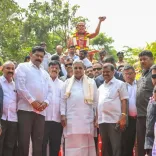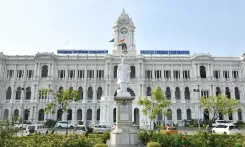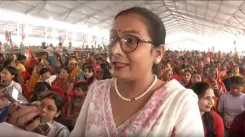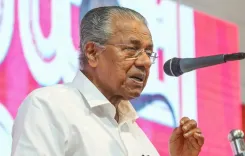Former Supreme Court Justice V. Ramasubramanian Assumes Role as NHRC Chairperson

New Delhi, Dec 30 (NationPress) Justice V. Ramasubramanian, a former judge of the Supreme Court, officially assumed the position of Chairperson of the National Human Rights Commission (NHRC) on Monday. Alongside him, Justice (Dr.) Bidyut Ranjan Sarangi has also taken on the role of member of the NHRC.
Born on June 30, 1958, in Mannargudi, Tamil Nadu, Justice Ramasubramanian earned his B.Sc. in Chemistry from Ramakrishna Mission Vivekananda College in Chennai before pursuing a degree in law at the Madras Law College.
He became a member of the Bar on February 16, 1983, and practiced for 23 years in the Madras High Court.
In 2006, Justice Ramasubramanian was appointed as an Additional Judge of the Madras High Court, and he became a permanent judge in 2009. By 2019, he had advanced to become the Chief Justice of the Himachal Pradesh High Court, later ascending to the Supreme Court that same year.
Justice Ramasubramanian retired from the Supreme Court on June 29, 2023, having authored 102 judgments, including significant rulings related to the 2016 demonetisation policy and the legitimacy of circumstantial evidence in corruption cases.
During his inaugural address, he underscored India's longstanding commitment to human rights, which he noted has been a part of the nation's ethos even before it gained global recognition.
He quoted the Tamil poet Thiruvalluvar, pointing out that human rights are intricately woven into India's cultural identity, and he urged for the advancement and safeguarding of human rights.
Present at the ceremony were Acting Chairperson Vijaya Bharathi Sayani, Secretary General Bharat Lal, along with other senior NHRC officials and staff.
After a period of over six months without a permanent head, the Centre approved Justice Ramasubramanian's appointment as NHRC Chairperson last week.
The President has also appointed Justice (Dr.) Bidyut Ranjan Sarangi and Priyank Kanoongo, the former Chairperson of the National Commission for Protection of Child Rights (NCPCR), to serve as members of the NHRC.
According to the Protection of Human Rights (PHR) Act, 1993, the national human rights body is composed of a Chairperson, five full-time members, and seven deemed members.
As per Sections 2, 3, and 4 of the PHR Act, the Chairperson and members are appointed by the President based on the recommendations of a committee that includes the Prime Minister (who serves as the committee’s Chair), the Home Minister, Leaders of the Opposition in both Houses of Parliament, the Speaker of the Lok Sabha, and the Deputy Chairman of the Rajya Sabha.
The Chairperson of the NHRC must have served as either the Chief Justice of India or a Supreme Court judge.
In addition to the Chairperson, the NHRC consists of five other members, excluding ex-officio members. One member must be, or have been, a judge of the Supreme Court, and another must be, or have been, the Chief Justice of a High Court. Among the three remaining members, selected for their professional expertise in human rights, at least one must be a woman.
The ex-officio members include the Chairpersons of various National Commissions, such as the National Commission for Scheduled Castes, National Commission for Scheduled Tribes, National Commission for Women, National Commission for Minorities, National Commission for Backward Classes, and National Commission for Protection of Child Rights; as well as the Chief Commissioner for Persons with Disabilities.
A sitting Judge of the Supreme Court or a sitting Chief Justice of any High Court can be appointed to the NHRC only after consultation with the Chief Justice of India.
The tenure for the NHRC Chairperson is set for five years or until the individual reaches 70 years of age, whichever comes first.
The NHRC was established on October 12, 1993, under the Protection of Human Rights Ordinance dated September 28, 1993.
The NHRC's mandate includes the protection and promotion of human rights, defined by the Act as "rights related to life, liberty, equality, and dignity of the individual guaranteed by the Constitution or embodied in the International Covenants and enforceable by courts in India".

